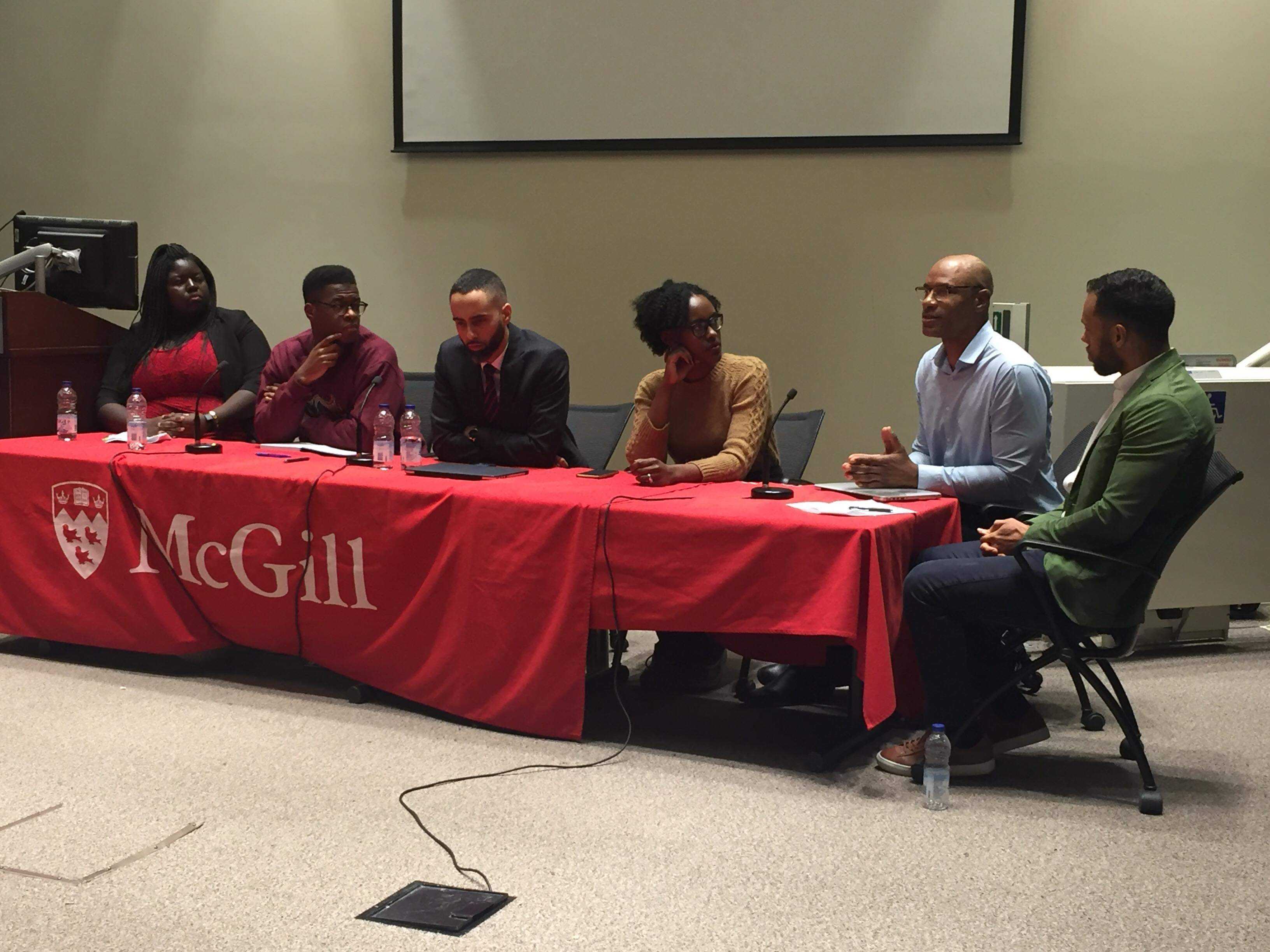As part of McGill’s Black History Month 2019, the Black Students’ Network of McGill (BSN) and Black Law Students’ Association of McGill (BLSAM) hosted a panel titled “Racism and Systemic Discrimination: The Canadian Context” on Feb. 4 to shed light on the realities of black lives in Canada. Moderated by McGill law students Balarama Holness and Alida Kamaliza, the panellists included Philip S. S. Howard, assistant professor McGill’s Department of Integrated Studies in Education; Julius Haag, PhD candidate at the University of Toronto’s Centre for Criminology and Sociolegal Studies; Fabrice Vil, former lawyer at Langlois Kronström Desjardins; and Shanice Yarde, equity educational advisor at the McGill Social Equity and Diversity Education Office.
The panellists began by addressing Canada’s neglected history of oppression against its black population. Although slavery was legal in Canada until 1834, Howard claims that this shameful past is often excluded from mainstream historical accounts.
“In Canada, we don’t get to find out that there actually was slavery,” Howard said. “There’s an active process by which the historical record was twisted and sponged in order to create that story. What is allowed is the story that we hear more commonly, which is that enslaved people in the U.S.A. escaped here.”
Howard referenced the concept of ‘anti-blackness,’ a different and starker form of discrimination that places black people below the considerations afforded to non-black people. He gave examples of how anti-black attitudes are still prevalent in Canada today.
“Whenever we get situations where we see types of behaviour perpetrated toward black people that you just can’t imagine happening to someone who is non-black, we are talking about anti-blackness,” Howard said. “One example is Robin Maynard, who writes in her book [‘Policing Black Lives: State Violence in Canada from Slavery to the Present’] about the incident in which a 6-year-old girl in her school in Toronto gets bound by hands and feet by police because she’s dangerous. What does it remind us of?”
Hagg drew attention to the police system to illustrate that systemic racism is still present in many primary social institutions of Canada today.
“When we talk about systemic racism, we talk about racism that is really fully embedded in systems,” Hagg said. “The police institution itself is an institution that is founded on the basis of racist principles. It was meant to maintain the difference between white people and other racialized people in society. We have moved from a system of formal discrimination to discrimination that is embedded in seemingly-neutral laws that don’t specifically mention race by word, but negatively impact people from racialized backgrounds.”
Holness asked panellists to consider how the McGill Faculty of Law could construct a more representative student and staff body. Yarde suggested that the answer does not lie in simply opening the doors to non-white candidates.
“There’s this emphasis on getting these people who are not white, not straight, not cis, not men in so we can increase our numbers, diversify, and be inclusive and equitable,” Yarde said. “But, then we don’t actually do any work or invest any resources to ensure that those people who are coming into these incredibly white, colonial institutions are going to be supported.”
The discussion ended with a question period, during which Howard expressed exasperation over the struggle for the recognition of black lives in Canada.
“I have come to the position in my life where that’s no longer where I want to put my energy,” Howard said. “If there are white folks who want to come along and recognize my value, recognize me as a human being, and want to engage, then let’s go. But I am not spending my energy trying to convince you that I am human. That’s ridiculous.”









